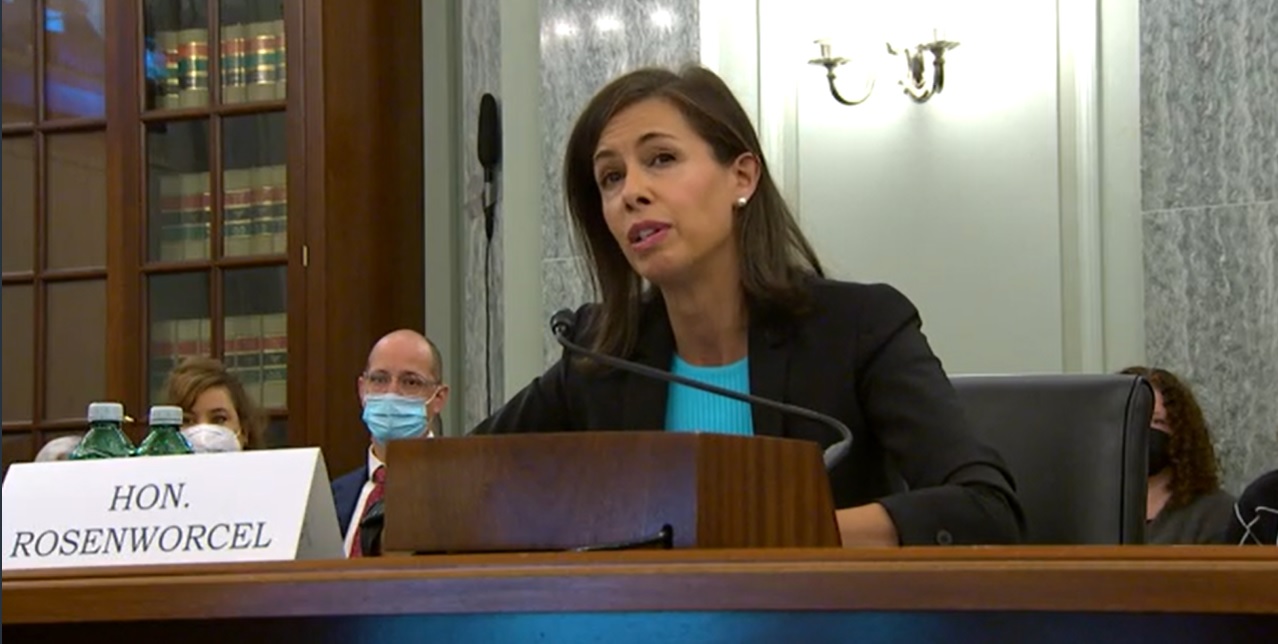FCC Launches Major Revamp of Broadband Availability Benchmark
Looks to boost high-speed definition to 100 Mpbs upstream and 20 Mbps downstream

The smarter way to stay on top of the multichannel video marketplace. Sign up below.
You are now subscribed
Your newsletter sign-up was successful
The FCC under chair Jessica Rosenworcel has signaled it wants the Biden administration’s universal service benchmarks of “affordability, adoption, availability and equitable access” to be part of its equation when calculating if advanced telecommunications are being deployed to all Americans in a reasonable and timely fashion.
“In light of the increasing uses and demands for broadband and the Congressional directives embodied in the Bipartisan Infrastructure Law, which includes the largest ever federal investment in broadband deployment, this Notice of Inquiry (NOI) will take a fresh look at the Commission’s standards for evaluating broadband deployment and availability, the quality of the Commission’s available data, and the framework that the agency uses to make a finding under section 706,” the Federal Communications Commission said.
Congress has charged the FCC under Section 706 of the Telecommunications Act of 1996 with periodically assessing the state of broadband deployment. Just what level of service should meet that definition has become a political football between Republican and Democratic administrations since if the FCC concludes that deployment isn’t timely, it can regulate to rectify the situation.
Republicans have traditionally found that there need not be 100% deployment for the process of deploying to be found reasonable and timely, while Democrats have seen less than 100% as less than timely. Now, the FCC is looking to make affordability, uptake and equitable access all targets that broadband deployment must meet to be considered reasonable and timely deployment to “all” Americans.
As part of its latest effort to make that deployment assessment for its upcoming Section 706 Report, the commission Wednesday (November 1) launched an inquiry into boosting its broadband speed benchmark. The inquiry has its eye toward setting a goal of 1 gigabit per second as future table stakes for the definition of high-speed broadband that is today’s “advanced telecommunications.”
“In order to get big things done, it is essential to set big goals,” Rosenworcel said. “That is why we are kicking off this inquiry to update our national broadband standard and also set a long-term goal for gigabit speeds."
The FCC currently defines high-speed broadband as speeds of 25 Megabits per second downstream and 3 Mbps upstream. It proposes to raise that to 100 Mbps upstream and 20 Mbps downstream.
The smarter way to stay on top of the multichannel video marketplace. Sign up below.
Contributing editor John Eggerton has been an editor and/or writer on media regulation, legislation and policy for over four decades, including covering the FCC, FTC, Congress, the major media trade associations, and the federal courts. In addition to Multichannel News and Broadcasting + Cable, his work has appeared in Radio World, TV Technology, TV Fax, This Week in Consumer Electronics, Variety and the Encyclopedia Britannica.

